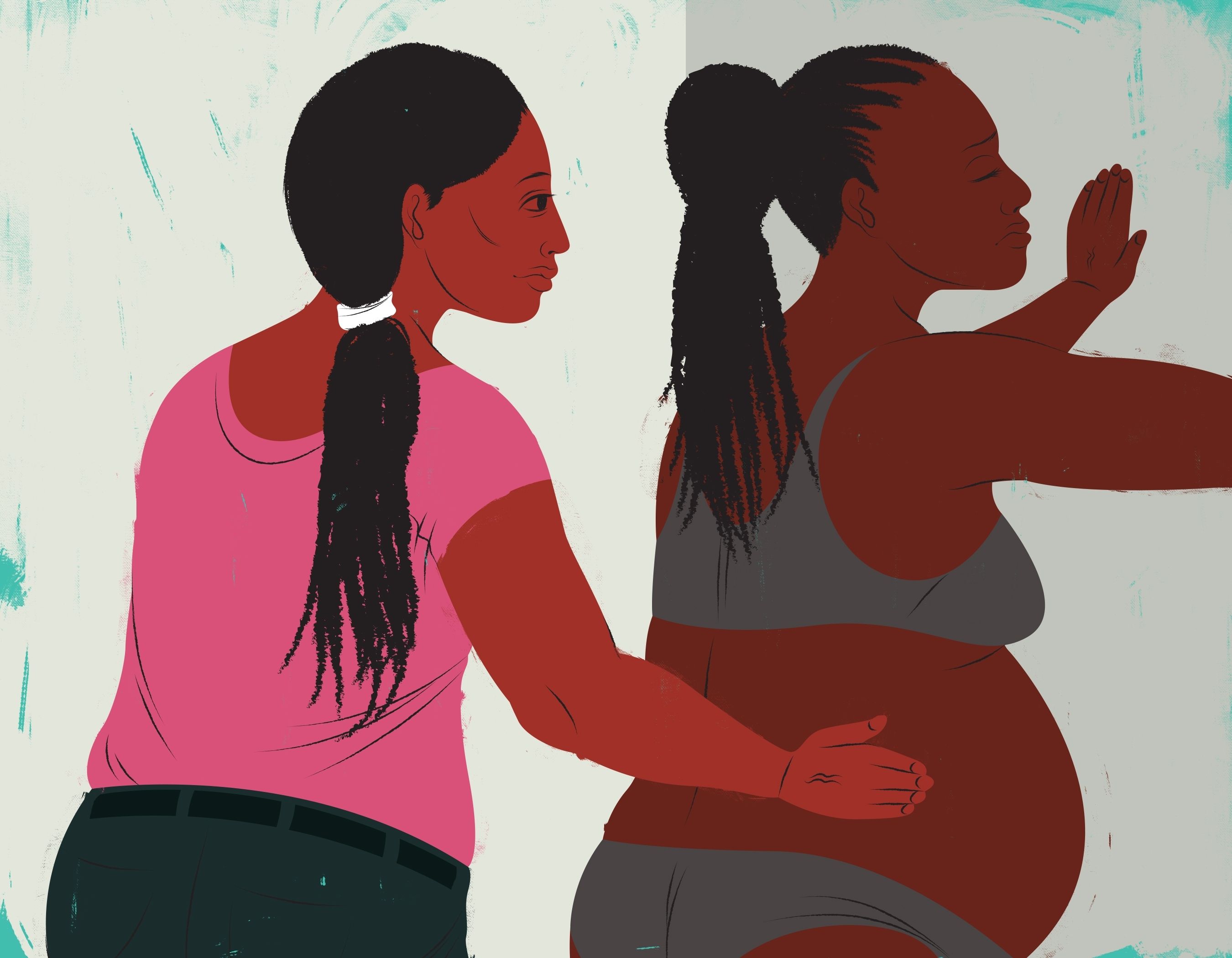American Vice President Kamala Harris said recently, “Black women in this country are facing a maternal mortality crisis,” a statement that references the troubling data surrounding black moms and childbirth. Health Affairs research shows that African American women experience 55.3 deaths per 100,000 live births—a maternal mortality rate that is three times higher than non-Hispanic white women. This maternal health crisis has led to a demand for more information and research, plus tangible changes that would improve outcomes for black moms and their babies. One solution that is being widely discussed is increasing access to doula care.
What Challenges Do Black Moms Specifically Face?
The childbirth process can be an extremely different experience for black moms compared to their counterparts of other ethnicities. The Center for American Progress examines the complex issues related to the maternal mortality crisis, explaining that there are a variety of contributing factors within our healthcare system. Unfortunately, racism and sexism are major problems that are influencing outcomes. Another key issue is the ongoing imbalance of essential resources. Black moms have substantially lower access to:
- Health insurance
- Quality prenatal care
- Reproductive healthcare
The Maternal Health Task Force elaborates further, indicating that black women are much more likely to suffer from health conditions like hypertension and pre-eclampsia. Their research also shows that that black women are much more likely to not receive any prenatal care compared to other races, which makes a significant impact on the prenatal and postpartum stages for both mom and baby. Worse, it's stated that hospitals with a predominantly black population tend to be under-resourced and lower in quality, which compromises the level of care that black moms receive.
Despite the increased awareness of this reality in recent years, the problem continues to worsen. The maternal mortality rate for African American women jumped from 46 to more than 53 deaths per 100,000 live births in 2020—a staggering 26 percent jump. This multifaceted, devastating disparity simply cannot continue. Real solutions are needed, and they are needed now.
What Is A Doula?
Doulas are non-clinical professionals that support moms during the childbirth process. Often called professional labor assistants, doulas are employed to offer guidance and physical or emotional comfort during pregnancy, delivery, and the postpartum period. They are not doctors and have usually not received formal medical training, although many do receive childbirth education credentials and attend multiple births before becoming a doula.
Midwifery and doula care have a longstanding history in the African American community. Our healthcare systems and society as a whole have changed greatly since the inception of personalized, supportive care. But the benefits are still evident: studies show that mothers who received assistance from doulas were two times less likely to experience birth complications affecting themselves or their baby, were four times less likely to have a baby with a low birth weight, and were more likely to breastfeed, according to the Journal of Perinatal Education.
How Can Black Moms Benefit From A Doula?
Evidence and research have proven that doulas can reduce childbirth complications and improve coordination of care. The people that need doula care most due to systemic racism, bias within the healthcare system, lack of funds or resources, or chronic health conditions—African American women—are the least likely to utilize a doula. March of Dimes statistics state that most doulas are white women that are typically treating other white, middle-class women.
It’s often difficult for moms—especially black moms in low-income areas—to be able to pay for doula services. And doulas are not typically covered by health insurance programs.
Recognizing this gap, a doula pilot program was launched by Blue Cross Blue Shield with encouraging results. The conception of this program took place in lower-income areas of California—focusing on zip codes with higher infant mortality and childbirth complication rates. Doulas were hired by community-based organizations that had a specific focus on black mothers. While the data is still being collected, the studies are already showing:
- Fewer Cesarean births
- Lower rates of postpartum depression
- A higher percentage of full-term births, compared to state or national averages.
In short, the early stages of this program are promising success.
While gaining more access to doula care won’t solve all maternal health problems for black moms, they can certainly feel more empowered with their connection to support, birthing knowledge, and resources that can help them through difficult prenatal and postnatal periods of their life.
Sources: HealthAffairs.org, AmericanProgress.org, Blue Cross Blue Shield, Maternal Health Task Force, National Museum of African American History and Culture, The Journal of Perinatal Education, March of Dimes




